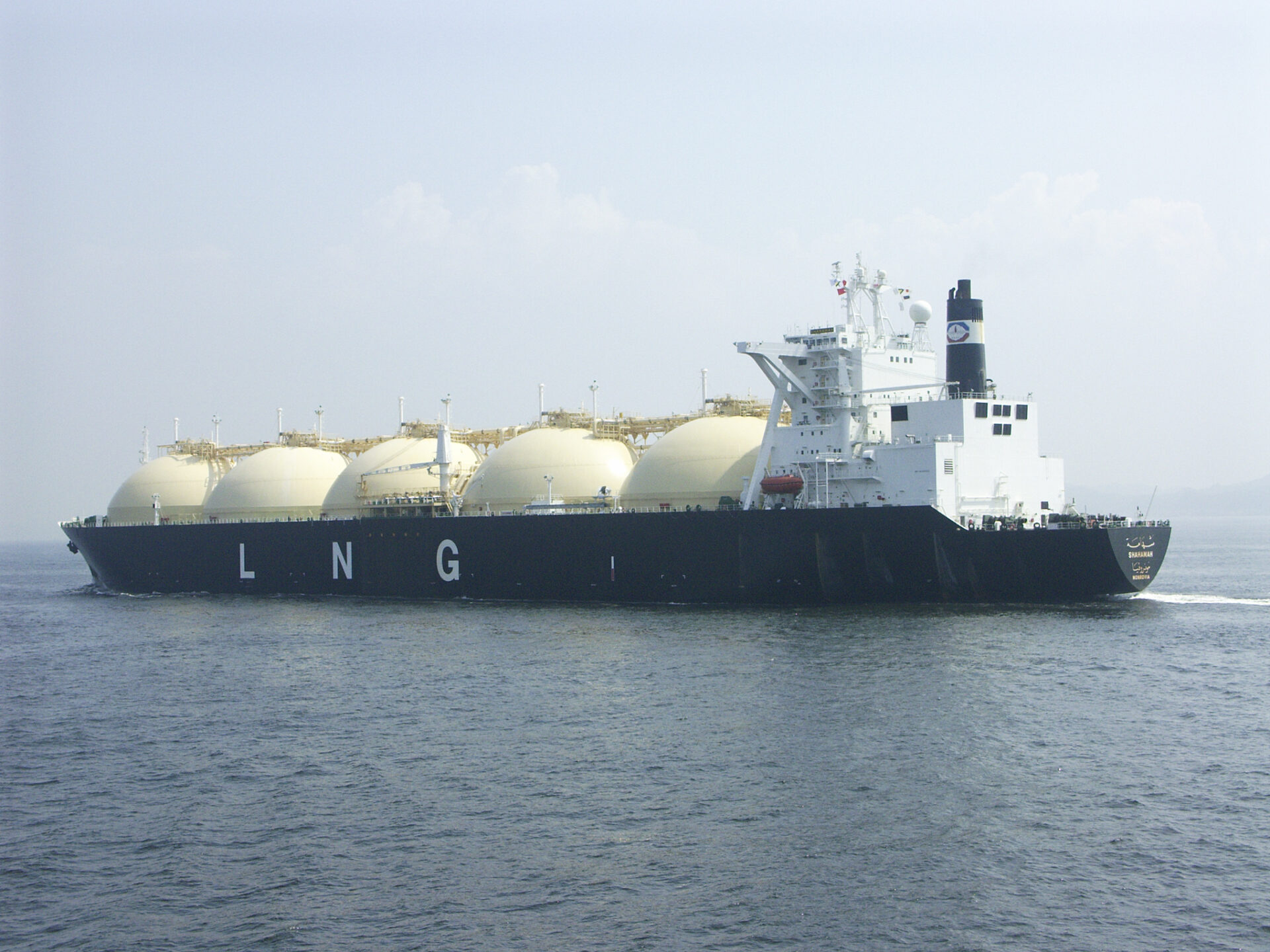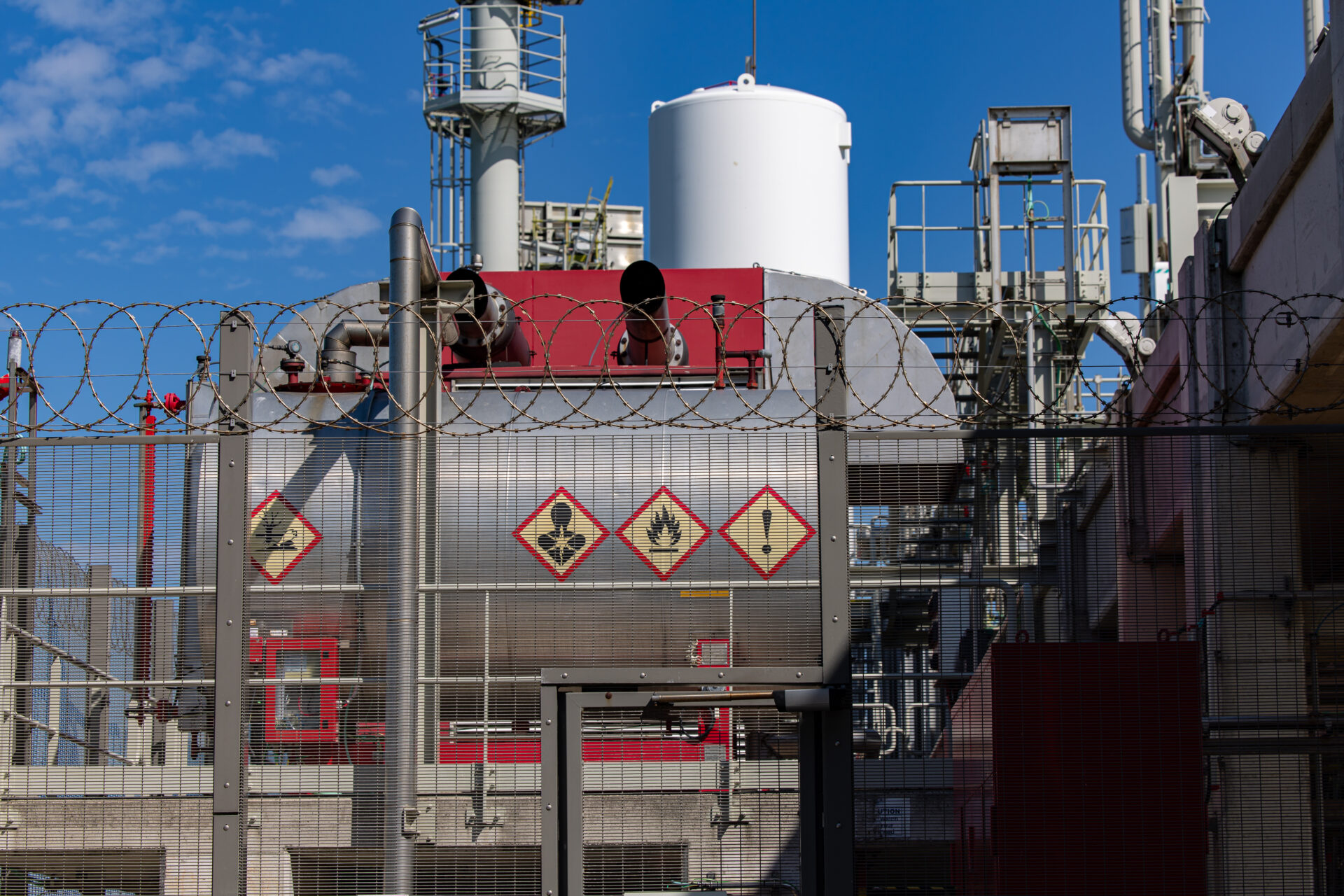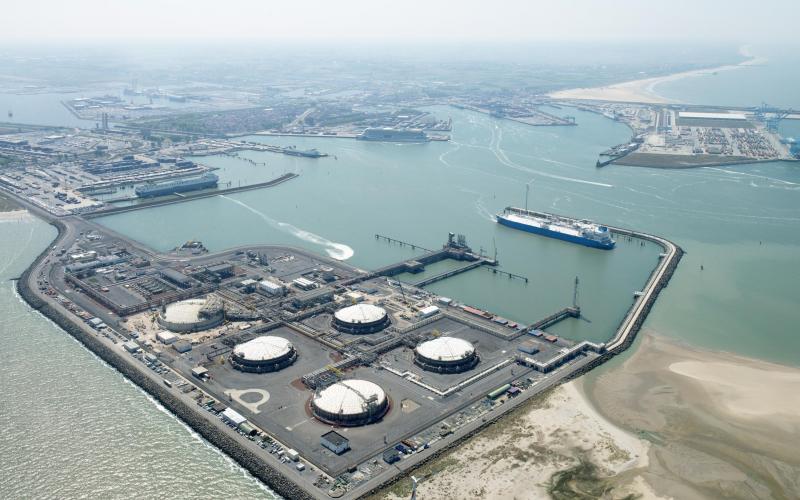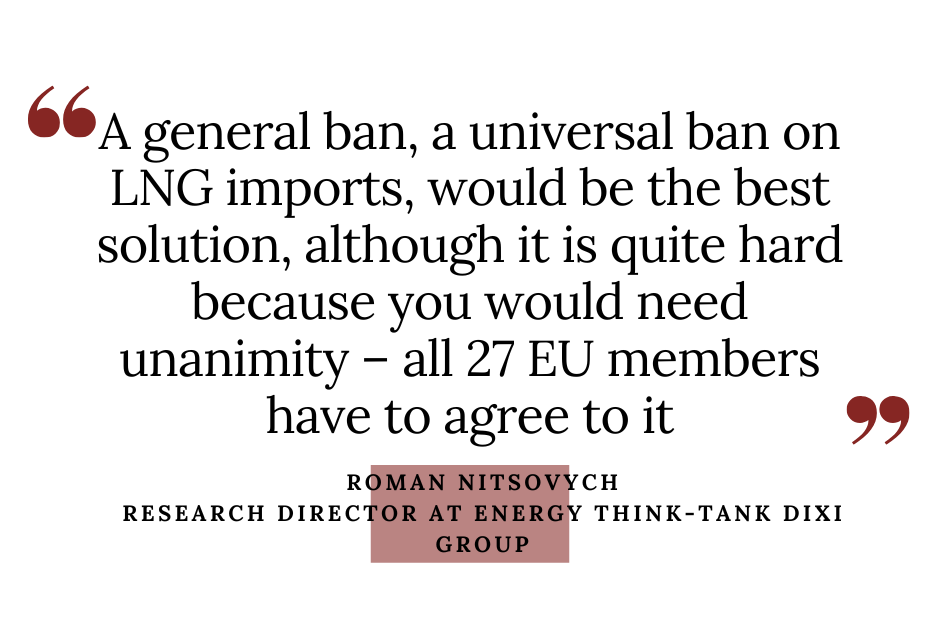An absolute record volume of Russian liquified natural gas (LNG) flowed through the Flemish port of Zeebrugge last year, according to statistics published by the commodity data portal ICIS.
While Belgium is typically not the end consumer of the gas, a total of around 4.4 million cubic metres flowed through the country in 2022, 70% more than in 2021. According to FPS Economy, in 2019, just 3% of regasified LNG used in Belgium came from Russia. Russian gas accounted for just 6.5% of gas imports in 2022.
However, while Belgium boasts its energy independence from Russia, it quietly makes record profits on the back of Russian LNG tanker ships, regasification, and transhipment. Over the last four years, Zeebrugge quietly increased its imports of Russian LNG more than fivefold, with Belgian LNG operator Fluxys making significant profits from the regasification of Russian liquified gas.
Gas gateway to Europe
In Zeebrugge, Russia has found a crucial link to Europe’s energy infrastructure. Following European sanctions on pipeline gas imports and a complete drop-off in deliveries following Russian state-owned Gazprom’s failure to respect existing contracts, the Flemish port has found new relevance for Russian energy companies.
Firstly, Russian ships loaded with LNG destined for European countries dock at the Zeebrugge port, where Belgian technicians and floating regasification facilities help turn the supercooled liquid back into gas, which is then injected into Europe’s gas transmission system.
This Russian gas then flows to energy-hungry importing countries within the European Union. Despite significantly reducing the import of other Russian hydrocarbons, EU Member States continue to import massive amounts of Russian LNG. These LNG sales represent a cash-cow for the Kremlin, with €1.6 billion of Russian LNG flowing through Belgium between March and October 2022 alone.

Credit: Blue and White Sails/Wikimedia Commons
Despite competition for imports, notably from Qatar and the US, the import of LNG from Russia in 2022 amounted to 19.2 billion cubic metres, up 35% from the year prior, according to statistics from Breugel. Last year, 35% of gas consumption in Europe came from LNG, up 15 percentage points against 2021.
One of the biggest players in this lucrative business is Russian energy company Novatek. The company’s LNG icebreakers regularly dock at Zeebrugge’s LNG terminal to offload their cargo, to the dismay of local Ukrainian activist groups.
The energy company is close to Putin’s inner circle: Leonid Milkheson, a close confidant of Russian President Vladimir Putin who is currently under UK sanctions, is the company’s majority shareholder.
Novatek is a significant earner for the Kremlin. In 2021, before the start of the war, Novatek paid around $3 billion in taxes towards the Kremlin, according to the company's corporate results. In November 2022, the Kremlin raised income taxes on LNG exporters to 34%, which it predicted would provide an additional $3.25 billion towards the Russian budget this year.
Income from the sale of LNG and other hydrocarbons indirectly sponsors Russia’s war in Ukraine. The government relies on high energy prices to help pay for its ballooning military costs and to dampen the effect of international sanctions.
As one of northern Europe’s largest LNG terminals, the port of Zeebrugge facilitates Russian access to the European energy market and protects natural gas incomes for the Russian budget. An EU blanket ban on Russian LNG imports, which European authorities have thus far been reluctant to enforce, would prevent this indirect financing of Russia’s war.
“A general ban, a universal ban on LNG imports, would be the best solution, although it is quite hard because you would need unanimity – so all 27 EU members have to agree to it… The share of Russia in total LNG imports is not that big, but it is number three in terms of volumes,” Roman Nitsovych, Research Director at Ukrainian energy think-tank DiXi Group told The Brussels Times.
While Member States are still free to purchase Russian LNG, the EU has dug deep to attempt to minimise its share in the European energy mix. Sometimes at great expense, Europe imports gas from across the world. LNG is shipped much like oil, allowing for a global competitive market. US LNG imports increased over 137% in the first 11 months of last year, despite elevated costs.
“In January and February, Russia was getting approximately €10 million in revenues every day for LNG supplies to the EU. This is roughly one-fifth of their daily revenues from LNG exports, which remained quite stable after the invasion,” Nitsovych noted.
To ban or not to ban?
Not only is Zeebrugge facilitating the transportation of LNG to the rest of Europe, it is also a crucial stopover point for Russian ships transporting LNG to the Asian market during the winter months.
Russian icebreakers cannot pass through the Arctic ice during this period. Instead, the ships travel south through European waters, ending up in Zeebrugge. Once in Belgium, the Russian icebreakers carry out trans-shipments to regular LNG carriers with the help of Belgian equipment.
In 2015, Belgian company Fluxys signed a contract worth €1 billion with Novatek-owned Yamal LNG to transfer natural gas between ships at Zeebrugge. The Belgian operator signed further agreements in 2020 to allow for the transfer of 18.4 billion cubic metres of Siberian gas each year, from which Fluxys gains considerable revenue. This contract will now run until at least 2040.
Now, Belgium finds itself in a bind – trapped between corporate obligations and a lack of European legislation. Despite the war in Ukraine, Fluxys is contractually obligated to honour its existing contracts with Yamal LNG and under international law, the port of Zeebrugge must offer free and fair competition for countries to use its facilities. With no ban on Russian LNG imports or tankers in European waters, Belgium is helpless to exclude Russia’s trade.

The Fluxys LNG-terminal (liquefied natural gas) in Zeebrugge. Credit: Belga/Kurt Desplenter
Belgium’s role in facilitating this lucrative industry has come under scrutiny in recent weeks. At a press conference on 9 May, Belgian Prime Minister Alexander De Croo faced tough questions from journalists about the role of the port in Russia’s energy industry.
“The port of Zeebrugge is an important import port for Europe, but it is also a transit port where there are existing contracts of, among other things, Russian gas that is transited there to other countries, for instance to China or other places around the world. Respecting those contracts for the use of Russian gas that is not for Europe is also a part of respecting existing contracts,” he told journalists.
The Belgian leader theorised that stopping Russian trans-shipment through Zeebrugge or other European ports would have the unforeseen consequence of driving up prices, including for Belgians. Certainly, there is a degree of truth behind this logic, Nitsovych argued.
Related News
- Dutch gas consumption at its lowest in 50 years
- Gas prices to stay 'structurally higher' as Europe is forced to compete with Asia
“[Breaking contracts] could be done. But there should be clear reasoning… Because otherwise the Russian would refer to arbitration, similar to how European companies are now suing Gazprom in arbitration for not performing their contracts,” he said.
A blanket EU LNG ban could also pose problems, pitting the European and Asian energy markets against each other. China has already exploited low domestic demand to sell Russian gas back to Europe at a premium.
If Russia is unable to ship its gas via affordable routes to Asia via Europe, Asian markets will look towards other countries to meet its need. If Chinese demand for gas rebounds this year, this could start a price war for the precious commodity. Eliminating Russian LNG from the European LNG mix would only increase prices further.
A delicate balancing act
Even without a total ban, Nitsovych said it is still possible to curb Russia’s profits from LNG exports. Russian LNG terminals, carriers, and regasification sites are still highly dependent on Western technology. Without this, they will face problems in shipping their gas internationally.
“Even if there is no such ban, there are still opportunities because those facilities in Russia run on Western technology. They still need to maintain, repair, and provide equipment. By reinforcing a ban or restriction on such equipment, you can put pressure to decrease production, or even stop these facilities,” he said.
Unfortunately, reduced equipment also means reduced safety at these facilities, increasing the likelihood of massive methane leakages. In October 2022, an investigation by the Washington Post concluded that Russia suffered several major accidents, releasing massive amounts of methane into the atmosphere.
For European policymakers, the issue of Russian LNG remains a delicate balancing game of price balancing, fair access, trans-shipment, and environmental concerns. Many experts now oppose a full ban, instead advocating for the development of new LNG corridors with nations in North America, the Caucuses, North Africa, and elsewhere.
“We as Europeans have done our homework," De Croo concluded. "We are phasing out Russian gas much faster for our own use. But as Belgium, we also want to make sure we can control the price impact for our citizens as much as possible. And we have succeeded… we should be able to keep it under control."


